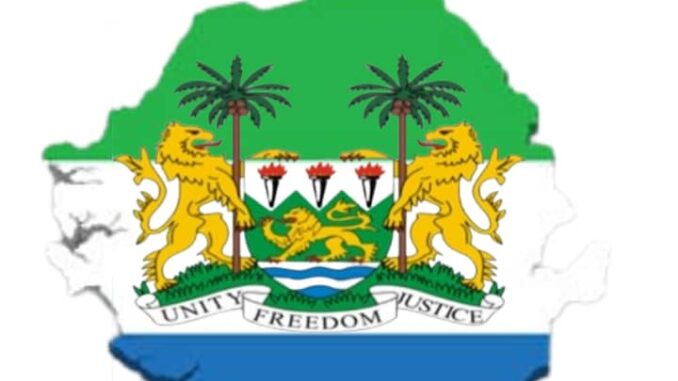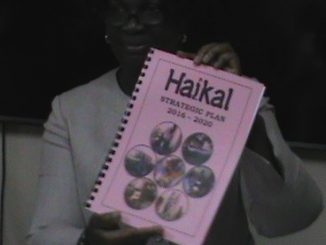
RESTORING HOPE: THE RESILIENCE OF NATURAL LAW AS A CATALYST FOR SOCIETAL RENEWAL IN SIERRA LEONE
by Mahmud Tim Kargbo
Thursday, 14 November, 2024
In contemporary discourse, the concept of natural law often faces skepticism, especially among legal positivists who perceive it as ineffective and potentially harmful. However, as this examination of natural law reveals, its absence can leave legal theory lacking depth and purpose. This observation is particularly relevant for nations like Sierra Leone, where the interplay between law, morality, and societal well-being is critical for fostering stability and growth.
Historically, natural law can be traced back to the seventeenth century in England, where the emerging liberal order emphasised the need for legal humility. The tumultuous political landscape of the time underscored humanity’s struggle to comprehend essential moral and social truths. In a society rife with divergent views, law needed to embrace skepticism and relativism, allowing individuals the freedom to define their own truths and identities. Sean Coyle articulates this sentiment, arguing that the pursuit of universally recognised moral principles within natural law can often be seen as a misguided attempt at authoritarianism.
In Sierra Leone, a nation that has experienced significant political strife and social fragmentation, the principles of natural law could provide a framework for rebuilding a cohesive society. The recognition that law should not merely reflect the whims of those in power, but rather anchor itself in shared moral truths, can serve as a guiding principle for legal reform. By fostering a legal culture grounded in natural law, Sierra Leone can work towards a system that supports the common good, empowering individuals while ensuring the protection of fundamental rights.
Despite its historical prominence, natural law theory has waned in legal education, often overshadowed by legal positivism, which posits that law is a construct independent of morality. Coyle’s work, *Natural Law and Modern Society*, argues that this approach is fundamentally limited, as legal positivism ultimately relies on the same moral foundations it seeks to dismiss. For Sierra Leone, embracing natural law could help bridge the gap between legal norms and the moral imperatives that guide human flourishing, making law a tool for justice rather than mere compliance.
Natural law, as articulated by thinkers like Thomas Aquinas and Hugo Grotius, emphasises that human beings exist within an order of desires and that moral truths are inherent to human nature. Coyle highlights that reason, rather than imposing a structure on human nature, reveals an existing order that guides individuals towards their true good. In the context of Sierra Leone, this perspective can inspire a legal framework that acknowledges the intrinsic dignity of each individual and the importance of promoting human flourishing through just laws.
The notion of core morality central to natural law suggests that legal systems must prioritise the protection of life, community, and mutual respect. For Sierra Leone, where issues such as poverty, violence, and social inequality persist, this principle can guide policymakers in crafting legislation that genuinely reflects the needs and aspirations of the populace. By aligning legal statutes with the fundamental goods that underpin human life, Sierra Leone can foster a more just and equitable society.
Furthermore, Coyle’s exploration of the common good offers valuable insights for Sierra Leone’s legal and political landscape. In contrast to utilitarian views that prioritise the majority’s benefit at the expense of marginalised groups, the common good in natural law encompasses the welfare of the entire community, including the most vulnerable. This approach is particularly pertinent for Sierra Leone, where social cohesion and the protection of individual rights are essential for sustainable development. Establishing laws that reflect this broader understanding of the common good can contribute to a more inclusive and harmonious society.
Coyle also examines the relationship between human rights and natural law, suggesting that authentic human rights are grounded in natural rights derived from our shared human nature. For Sierra Leone, recognising the link between human rights and natural law can provide a solid foundation for advocating for the rights of all citizens, especially those who have historically been marginalised. This perspective can help address the potential pitfalls of human rights discourse, ensuring that legal protections are not merely theoretical but are actively realised in the lives of individuals.
The principles of natural law hold significant potential for effecting positive change in Sierra Leone. By integrating the core tenets of natural law into the legal framework, Sierra Leone can foster a more just society that respects human dignity, promotes the common good, and empowers all citizens. As the country navigates its path towards recovery and growth, embracing the resilience and relevance of natural law could serve as a beacon for a brighter future, ensuring that the law remains a reflection of shared moral values rather than a tool of oppression.
THE revival of natural law principles could usher in a transformative era for Sierra Leone, empowering individuals and fostering a culture of respect and justice. By anchoring its legal framework in the fundamental truths of human dignity and the common good, Sierra Leone has the opportunity to build a society where every citizen can thrive, contributing to a peaceful and prosperous future for all.




Leave a Reply